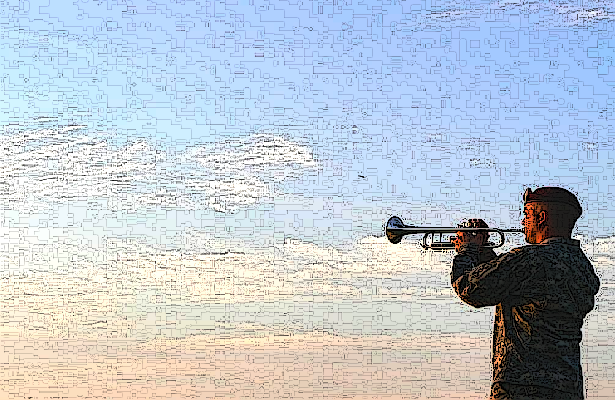Looking at where we are and where we have come from, it is clear that classical music requires a shift in mentality and mindset if it is to survive.
Many people have already realized this truth about the world we are in. Official unemployment is just under 10%, but real unemployment factoring in underemployed and discouraged workers pushes that number much higher, with some estimates above even 20%. Coming out of college with no job opportunity, the only choice for some is to create their own opportunity.
A number of professionals in the classical world are already stepping up to meet the challenges of the new age. These artists and creative entrepreneurs recognize that moving forwards into the future requires new ways of thinking and innovative approaches in order to create something that is exciting, fresh, and meaningful. Long ago, the Kronos Quartet demonstrated with visionary creativity how to reshape the classical tradition for the modern world.
Kronos’ mission has always been “to continually re-imagine the string quartet experience,” and they made sponsoring new works an integral part of that mission early on. By assuming the role of managing themselves, the members of Kronos set out to make their own opportunities. They hit the market with a bang, inspiring a whole new audience of young people to attend Kronos’ concerts.
Newspapers and magazines across the country began to take note of an ensemble that seemed to be challenging the orthodoxies of a tradition-based form. “There was a time when I noticed that every single review had to do with clothes and haircuts,” says Janet Cowperthwaite.”
Kronos fulfilled multiple market needs: they challenged the orthodoxy of how classical music could be presented (something which had contributed greatly to classical’s emerging death knell); they established that artists could (effectively) be their own managers and promoters; and they assumed the role of a sponsor for new and emerging composers, something that developed into a tremendous staple of popular and classical music alike.
Kronos represented one of the first attempts at true creative entrepreneurship in the classical world. At its core, being an entrepreneur is about building your own opportunity in order to take control of your own life and future. With so many musical professionals coming through the traditional system of education, we have perhaps more high-level performers and artistic instructors today than ever before.
So what do you do when your skills and experience are a dime a dozen? You must be creative. This is what Kronos did as early as the 1970s, and what a number of successful musical entrepreneurs are doing today.
When legendary artist manager Edna Landau was asked how her partnership with Charles Hamlen took them from a three-person group in a one-room apartment to an international management agency she answered: “Hard work, blind faith, passion for the cause of promoting young artists, incessant networking, and a vision that refused to be tarnished by naysayers.” [1]
 Economic hardship creates fear in the marketplace; it fosters an environment where people are afraid to stand out and take risks. That means that the people who do stand out will have much more of an impact. And it means that anyone and everyone has the opportunity to be one of those who make that difference.
Economic hardship creates fear in the marketplace; it fosters an environment where people are afraid to stand out and take risks. That means that the people who do stand out will have much more of an impact. And it means that anyone and everyone has the opportunity to be one of those who make that difference.
For example, in the case of the Honolulu Symphony which closed down (see part 1), one man proposed reorganizing it as a for-profit organization. It was a potentially risky idea… but it was also a creative solution. More importantly, it was a call to action. Often times the only way to move forward through uncertainty is action.
In the end the Honolulu Symphony did not adopt this plan. However, thanks to the creativity and flexibility of negotiators and the musicians union, as well as the assistance of a former fellow orchestra conductor, the symphony is now planning for its new season in the fall of 2011.
String Visions is our call to action. We need our artists, our creative entrepreneurs, our warriors to step up and fight for classical music. We need YOU because if we do not challenge the old institutionalized models classical music will not survive.
The artists who have done this have risen to prominence precisely because they challenged the traditional norms. Their success in a world of declining funding and interest in classical music is a result of their entrepreneurial spirit and creativity, their ability to harness to forces of the information revolution in our economy.
[1] Edna Landau. “Getting Noticed in the 21st Century.” Musical America. Featured Article 2011 http://www.musicalamerica.com/features/?fid=175&fyear=2011.















Thank you so much for such valuable advice!
I realized why String Visions is necessary.
Thanks again!
Thanks for the comments! I’m glad you are finding the information here helpful! I look forward to your thoughts on parts 3 and 4 when they are released.
Thanks a lot for the information,its about taking little steps that will be BIG ones in the future in the process of this new revolution of classical music rebirth because we believe in it.